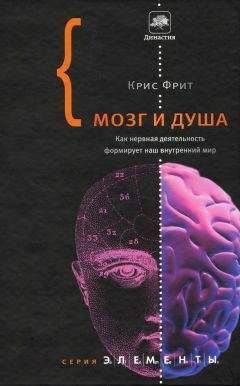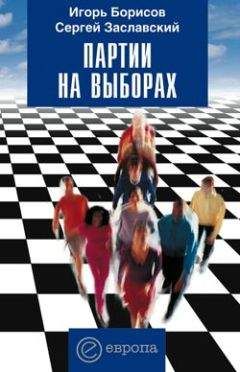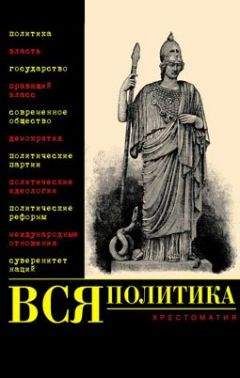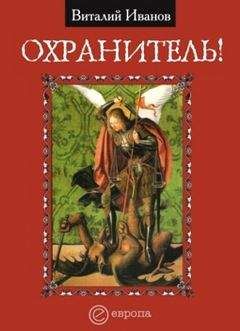non initially failed to perceive the role of characteropathic
personalities in the genesis of pathocracy. However, when we
attempted to reconstruct the early phase of said genesis, we had
to acknowledge that characteropaths played a significant role in
this process.
We already know from the preceding chapter how their de-
fective experiential and thought patterns take hold in human
minds, insidiously destroying their way of reasoning and their
ability to utilize their healthy common sense. This role has also
proved essential because their activities as fanatical leaders or
spellbinders in various ideologies open the door to psycho-
pathic individuals and the view of the world they want to im-
pose.
In the ponerogenic process of the pathocratic phenomenon,
characteropathic individuals adopt ideologies created by doc-
trinaire, often schizoidal people, recast them into an active
POLITICAL PONEROLOGY
189
propaganda form, and disseminate it with their characteristic
pathological egotism and paranoid intolerance for any philoso-
phies which may differ from their own. They also inspire fur-
ther transformation of this ideology into its pathological coun-
terpart. Something which had a doctrinaire character and circu-
lated in numerically limited groups is now activated at societal
level, thanks to their spellbinding abilities.
It also appears that this process tends to intensify with time;
initial activities are undertaken by persons with milder charac-
teropathic features, who are easily able to hide their aberrations
from others. Paranoid individuals then become principally ac-
tive. Toward the end of the process, an individual with frontal
characteropathy and the highest degree of pathological egotism
can easily take over leadership.
As long as the characteropathic individuals play a dominant
role within a social movement affected by the ponerogenic
process, the ideology, whether doctrinaire from the outset or
later vulgarized and further perverted by these latter people,
continues to keep and maintain its content link with the original
prototype. The ideology continuously affects the movement’s
activities and remains an essential justifying motivation for
many. In this phase, therefore, such a union does not move in
the direction of criminal acts on a mass scale. To a certain ex-
tent, at this stage, one can still define such a movement or un-
ion by the name of its original ideology.
In the meantime, however, the carriers of other (mainly he-
reditary) pathological factors become engaged in this already
sick social movement and proceed with the work of final trans-
formation of the contents – both ideological and human - of
such a union in such a way that it becomes a pathological cari-
cature of its original ideology. This is effected under the ever-
growing influence of psychopathic personalities of various
types, with particular emphasis on the inspiration role of essen-
tial psychopathy.
Such a situation eventually engenders a wholesale show-
down: the adherents of the original ideology are shunted aside
or terminated. (This group includes many characteropaths,
especially of the lesser and paranoidal varieties.) The ideologi-
cal motivations and the double talk they created then are util-
190
PATHOCRACY
ized to hide the actual new contents of the phenomenon. From
this time on, using the ideological name of the movement in
order to understand its essence becomes a keystone of mis-
takes.
Psychopathic individuals generally stay away from social
organizations characterized by reason and ethical discipline.
After all, such organizations are created by that other world of
normal people so foreign to them. They hold various social
ideologies in contempt, while, at the same time, easily discern-
ing all their actual failings. However, once the process of pon-
eric transformation of some human union into its yet undefined
cartoon counterpart has begun and advanced sufficiently, they
perceive this fact with almost infallible sensitivity: a circle has
been created wherein they can hide their failings and psycho-
logical differentness, find their own modus vivendi, and maybe
even realize their youthful Utopian dream of a world where
they are in power and all those other, “normal people”, are
forced into servitude. They then begin infiltrating the rank and
file of such a movement; pretending to be sincere adherents
poses no difficulty for the psychopath, since it is second nature
for them to play a role and hide behind the mask of normal
people.
The psychopaths’ interest in such movements is not an ex-
clusive result of their egoism and lack of moral scruples. These
people have in fact been hurt by nature and society.93 An ideol-
93 It is important to note here that it is not meant that the psychopath has been
“emotionally” hurt, or that such “hurt” has contributed to their state of being.
Rather, as the author explained to me in private correspondence: “For them
you are their worst enemy. You are hurting them very painfully. For a psy-
chopath, revealing his real condition, tearing down his Cleckley mask, brings
the end of his self-admiration. You are threatening them with destruction of
their secret world, and bring to null their dreams of ruling and introducing [a
social system where they can rule and be served]. When his real condition is
publicly revealed, a psychopath feels like a wounded animal.
“You are partly right in finding some similarity of the essential psychopath
with the thought [processes] of a crocodile. They are somewhat mechanical.
But, are they guilty that they have inherited an abnormal gene, and that their
instinctive substratum is different from that of the majority of the human
population? Such a person is not able to feel like a normal person, or to un-
derstand a person bearing a normal instinctive endowment. [It is important]
to try to understand the psychopath, and have some pity for them [as you
would have pity for a crocodile and its right to exist in nature]. Limiting the
POLITICAL PONEROLOGY
191
ogy liberating a social class or a nation from injustice may thus
seem to them to be friendly; unfortunately it also gives rise to
unrealistic hopes that they themselves will be liberated as well.
The pathological motivations which appeared in a union at the
time it begins to be affected by the ponerogenic process strikes
them as familiar and hope-inspiring. They therefore insinuate
themselves into such a movement preaching revolution and war
against that unfair world so foreign to them.
They initially perform subordinate functions in such a
movement and execute the leaders’ orders, especially whenever
something needs to be done which inspires revulsion in oth-
ers.94 Their evident zealotry and cynicism gives rise to criticism
role of psychopaths in ponerogenesis, particularly in the case of the tragedies
they cause women, thus reducing their numbers, is the real aim.
“Take as well in your consideration that in the whole pool of pathological
factors taking part in ponrogenezis all kinds of psychopathies make up some-
thing less than half. The other pathologic conditions, usually not hereditary,
make up more than other half. Stalin was not a psychopath. He was a case of
frontal characteropathy due to the damage of frontal centers (10A&B) caused
be a disease he suffered as a newborn. This produces dramaticaly dangerous
characters.” [Editor’s note.]
94 Here, we cannot help but think of Karl Rove, Dick Cheney, and Donald
Rumsfeld, protégés of the neocon philosopher, Leo Strauss. Strauss evi-
dences typical schizoidal doctrinaire characteristics.
“Like Plato, Strauss believed that the supreme political ideal is the rule of the
wise. But the rule of the wise is unattainable in the real world. Now, accord-
ing to the conventional wisdom, Plato realised this, and settled for the rule of
law. But Strauss did not endorse this solution entirely. Nor did he think that it
was Plato's real solution - Strauss pointed to the ‘nocturnal council’ in Plato's
Laws to illustrate his point.
“The real Platonic solution as understood by Strauss is the covert rule of the
wise. This covert rule is facilitated by the overwhelming stupidity of the
gentlemen. The more gullible and unperceptive they are, the easier it is for
the wise to control and manipulate them. [...]
“For Strauss, the rule of the wise is not about classic conservative values like
order, stability, justice, or respect for authority. The rule of the wise is in-
tended as an antidote to modernity. Modernity is the age in which the vulgar
many have triumphed. It is the age in which they have come closest to having
exactly what their hearts desire - wealth, pleasure, and endless entertainment.
But in getting just what they desire, they have unwittingly been reduced to
beasts.
“Nowhere is this state of affairs more advanced than in America. And the
global reach of American culture threatens to trivialise life and turn it into
entertainment. This was [a] terrifying [...] spectre for Strauss. […]
192
PATHOCRACY
on the part of the union’s more reasonable members, but it also
earns the respect of some its more extreme revolutionaries.
They thus find protection among those people who earlier
played a role in the movement’s ponerization, and repay the
favor with compliments or by making things easier for them.
Thus they climb up the organizational ladder, gain influence,
and almost involuntarily bend the contents of the entire group
to their own way of experiencing reality and to the goals de-
rived from their deviant nature. A mysterious disease is already
raging inside the union. The adherents of the original ideology
feel ever more constricted by powers they do not understand;
they start fighting with demons and making mistakes.
If such a movement triumphs by revolutionary means and in
the name of freedom, the welfare of the people, and social jus-
tice, this only brings about further transformation of a govern-
mental system thus created into a macrosocial pathological
phenomenon. Within this system, the common man is blamed
for not having been born a psychopath, and is considered good
for nothing except hard work, fighting and dying to protect a
system of government he can neither sufficiently comprehend
nor ever consider to be his own.
An ever-strengthening network of psychopathic and related
individuals gradually starts to dominate, overshadowing the
others. Characteropathic individuals who played an essential
“[Strauss was] convinced that liberal economics would turn life into enter-
tainment and destroy politics.[...] [Strauss] thought that man's humanity
depended on his willingness to rush naked into battle and headlong to his
death. Only perpetual war can overturn the modern project, with its emphasis
on self-preservation and ‘creature comforts.’ Life can be politicised once
more, and man’s humanity can be restored.
“This terrifying vision fits perfectly well with the desire for honour and glory
that the neo-conservative gentlemen covet. It also fits very well with the
religious sensibilities of gentlemen. The combination of religion and nation-
alism is the elixir that Strauss advocates as the way to turn natural, relaxed,
hedonistic men into devout nationalists willing to fight and die for their God
and country.
“I never imagined when I wrote my first book on Strauss that the unscrupu-
lous elite that he elevates would ever come so close to political power, nor
that the ominous tyranny of the wise would ever come so close to being
realised in the political life of a great nation like the United States. But fear is
the greatest ally of tyranny.” (Shadia Drury, professor of political theory at
the University of Regina in Saskatchewan). [Editor’s note.]
POLITICAL PONEROLOGY
193
role in ponerizing the movement and preparing for revolution,
are also eliminated. Adherents of the revolutionary ideology
are unscrupulously “pushed into a counter-revolutionary posi-
tion”. They are now condemned for “moral” reasons in the
name of new criteria whose paramoralistic essence they are not
in a position to comprehend. Violent negative selection of the
original group now ensues. The inspirational role of essential
psychopathy is now also consolidated; it remains characteristic
for the entire future of this macrosocial pathological phenome-
non.
In spite of these transformations, the pathological block of
the revolutionary movement remains a minority, a fact which
cannot be changed by propaganda pronouncements about the
moral majority adhering to the new, more glorious version of
the ideology. The rejected majority and the very forces which
naively created such power to begin with, start mobilizing
against the block of psychopaths who have taken over. Ruth-
less confrontation with these forces is seen by the psychopathic
block as the only way to safeguard the long-term survival of
the pathological authority. We must thus consider the bloody
triumph of a pathological minority over the movement’s major-
ity to be a transitional phase during which the new contents of
the phenomenon coagulate.
The entire life of a society thus affected then becomes sub-
ordinated to deviant thought-criteria and permeated by their
specific experiential mode, especially the one described in the




